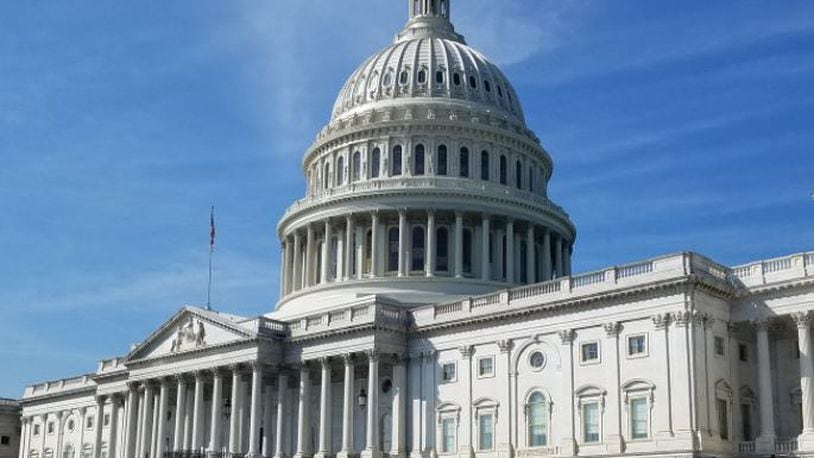1. GOP can't just put a tax bill on the floor. Since the White House and Republicans want to use the process known as "budget reconciliation," which does not allow a filibuster in the Senate, lawmakers must first approve a budget outline for 2018 to authorize that process. The House is expected to vote on that budget outline this week. The Senate Budget Committee unveiled its own 'budget resolution" on Friday, and that panel plans to vote on the measure this week as well. Republicans could avoid this hurdle if they used regular order for a tax reform bill - that's what happened in 1986 - when tax reform was a bipartisan effort. Remember, 'budget reconciliation' didn't work for a GOP effort to overhaul the Obama health law. Could tax reform suffer the same fate?
2. The calendar for tax reform action. This reporter cringed earlier this year when the Secretary of Treasury said that Congress would approve tax reform by the August break. That sounded like talk from a legislative rookie, and it was. Last week, the President's top economic adviser expressed the hope that the House would vote on tax reform in the month of October. That also might be a stretch. As mentioned above, Congress must first pass a budget resolution for 2018, and with both the House and Senate taking a week off from their work on Capitol Hill, finalizing the budget resolution in October, producing a bill from the Ways and Means Committee in the House, ironing out the massive amount of tax reform details, finding the votes, and getting that to the floor - all this month - seems unlikely.
3. Gucci Gulch is just awakening. Back in 1986, the area outside of the House Ways and Means Committee was dubbed "Gucci Gulch," referring to all the well-heeled lobbyists who were trying to influence the details of the 1986 Tax Reform Act. GOP lawmakers eagerly tell me that this time will be different, that they will speed their plan through the Congress without it getting bogged down by lobbyists in a variety of industries. That would seem plausible if this were only a tax cut. But this is being sold right now as a giant reform of the tax code, which means getting rid of a lot of tax breaks - and many of those tax provisions go to big businesses, who don't want to lose their edge. This is more complicated than health care reform.
4. Outlines are one thing - details are another. Again, if you are just going to do a simple tax cut, then that does not involve that much change in the tax code (and that might still be an option for Republicans later this year). But if you are going to do full-fledged tax reform, there will be distinct winners and losers, as the Congress takes away certain tax breaks and loopholes. And don't expect the losers to just stay quiet along the way. That's why the exact details of a tax plan are so, so important - and we haven't seen any of those. For example, doing away with the write off for state and local taxes is a big deal - and these type of examples will multiply dramatically, once we get an actual tax reform bill from Republicans.
5. What about the deficit? Usually, Republicans are all about the budget deficit, but when it comes to tax cuts, they have a different argument. But the tax issue will be important in the Senate, because if Republicans do use 'budget reconciliation,' then any tax plan must not raise the deficit in later years - or else, it can only be temporary, expiring after ten years. Remember, that was the dispute over the Bush tax cuts, the expiration of those led to the battle over the "fiscal cliff." Yes, this is arcane. Yes, it involves the Byrd Rule in the Senate. But this is a big deal. The House budget resolution calls for a "deficit neutral" tax plan. The Senate tax plan would allow for the deficit to be increased by $1.5 trillion. We'll see what happens.
About the Author
